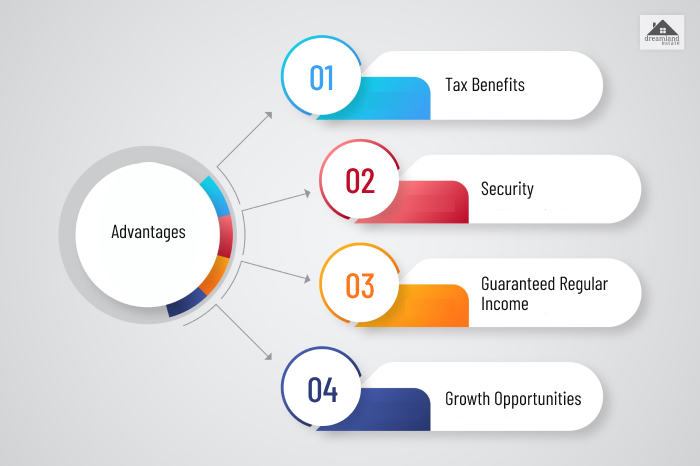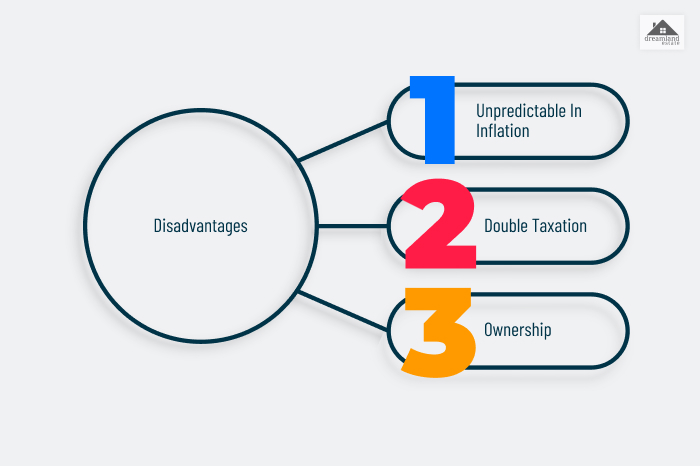Who Is A Lessor? Is Lessor A Landlord? Types Of Lessors

Regarding leasing any property, two parties are involved -a lessee and a lessor. The lessee is someone who takes a property for lease, and a lessor is the person who leases the property out to the lessee.
Simply put, a lessor leases land or property to another person who wants to rent it. Leasing their property allows the lessor to earn a specific amount in rent. They earn this amount upon the fixed rate discussed in the lease agreement.
In this article, I have listed down all the necessary information you might want to know about a lessor. Go through this article to learn about who a lessor is and their roles in leasing a property.
Who Is A Lessor?

A lessor is an individual with an asset or property they legally own. They can rent out this property and make a passive income. Property leasing does not always have to be a house or a room. Someone can lease or rent out different assets, like vehicles, machines, equipment, etc., to make money.
For example, someone might own a house that they can rent out for a specific period, as mentioned in the lease agreement. Leasing a property can also include leasing things such as a car.
A lease is a transactional relationship where the lessor allows the lessee to use their property for a price. The payment of this price can be in a lump sum. Or the lessee can pay the rent in installments. Whichever the payment method is, it needs to be included in the lease agreement.
The lessor has to create all the terms and conditions related to the property and document them in a binding contract. They also need to mention any present material defect in the asset they are renting out. The lessee needs to agree to all the different terms and conditions of the property before they take it for rent. Once both parties have agreed upon the terms and conditions, only then the agreement will be confirmed.
| Key Takeaways A lessor legally owns a property they can rent to different individuals under certain conditions. Those conditions include a fixed payment, a period for which the property can be leased, and some property-specific rules that both parties agree upon. The ownership of the leased property remains with the lessor, but the lessee can use it according to the lease agreement. |
Different Types Of Lessors

Depending on the type of asset someone owns and rents out, there can be different types of lessors. Go through the section below to learn about the different kinds of lessors that exist.
Real Estate Lessors
The most common leased asset has always been the commercial real estate products. Thanks to these leased items. People who do not have a house can find their shelter. They can look for affordable residential properties and enter a contract with the lessors who want to lease such products.
The federal government has provided the lessors with different rights regarding their rental properties, sending out rental notices and proceeding with the eviction process for some of them.
However, a landlord needs to have solid grounds for an eviction process to the same. According to federal law, they can proceed with an eviction if the following cases were to happen –
- Non-payment of rent;
- Not vacating the landlords’ premises after the lease period is over.
- Violation of different terms of the contract.
- If there is damage or losses caused to the rented property.
Advertisement Space Lessors
As mentioned before, there are different types of lessors. You might have seen large hoardings and billboards on the street or the rooftops of specific buildings in the middle of the town or in traffic.
These are some of the common spaces well suited for advertisement. So, the owners of such areas can rent out these spaces for advertisement. Most of these rented advertisement spaces charge some money, and the lessors can rent them out according to their terms and conditions.
Car Lessors
Most of the towns and big cities have car rental services where people who can drive can take a car for rent. Lesses who rent cars from rental services can use these cars (properties) to make money. A common example of the same would be in tourism areas. If driving is your thing and if you have a driving license, you can make money by driving cabs. But you need a car for that. No problem if you do not have a car; you can always sell one from a car lessor.
This is also applicable to different vehicles like school buses and transport trucks. Vehicle rental services allow many of the lessees to make money by renting out their vehicles.
Equipment Lessors
There are many rental services that rent out different machinery and equipment to people who need it. There is a need for healthcare equipment. Diagnostic machines are one of the most commonly leased properties in the healthcare sector. Construction companies require different machinery, like cranes, to complete their day-to-day tasks.
Many heavy machinery, energy equipment, and fitness equipment for the gym can be leased as well. As an equipment lessor, one can generate revenue from leasing out different machinery that they rent out.
Is A Lessor A Landlord?
Not necessarily. We can think of the term lessor as an umbrella term for someone who rents something. A landlord is a lessor, and in most cases, lands, vehicles, and different equipment are blessed to customers who want them. So, it is important to note that not all lessors are landlords. But landlords who lease properties are certainly lessors.
Advantages and Disadvantages Of Lessor
Being a Lessor comes with different pitfalls. Therefore, it is of seminal importance to understand these aspects one by one.
The following section is all about that. In the next two subsections, we will primarily discuss some of the advantages and disadvantages of being a lessor so that you know what to expect.
Advantages

First are the advantages of being a lessor. This section will primarily talk about some of the major benefits of being a lessor.
The advantages of being a lessor are varied and can span across different metrics. Here are some of the biggest advantages of being a lessor.
Here we go!
Tax Benefits
One of the foremost advantages of being a lessor is the Tax benefit. As a lessor, you can get several different forms of tax benefits. These benefits are significant and can increase your overall income as time passes. By law, if you lease out properties with a depreciation rate, then your overall tax decreases as well.
Security
As a lessor, security should be one of your primary concerns. You cannot leave things unattended. Thankfully, as per Indian laws and regulations, a lessor can take back an asset if they are not receiving optimal payments from the lessee. This safeguards the interest of the lessor to a great extent.
Guaranteed Regular Income
Another essential advantage of being a lessor is passive regular income. As a lessor, you can earn by leasing out your property. This ensures that you receive optimal and regular payments. Hence, being a lessor can give you financial and freedom of time.
Growth Opportunities
Leasing is a very advantageous sector. There are several opportunities for growth that no other sector offers. This is primarily because of the tons of opportunities for growth and economic growth. Even when the economy is in a slump, lessors can earn a stable income from a specific source.
Disadvantages

Even if there are tons of advantages to being a lessor, you must not make any decision before understanding some of the disadvantages. Therefore, this subsection is all about understanding some of the disadvantages of being a lessor.
Unpredictable In Inflation
As a lessor, you are setting a fixed rent and then extracting that rent for a stipulated amount of time. This sounds great. However, by law, you cannot increase or decrease this rent once it is agreed upon by both parties. Therefore, in case of inflation, where every commodity’s price is rising, your rent would stay the same.
Double Taxation
Another major aspect that you need to remember and understand is that tax might be levied twice in certain cases. This tax could be levied at the time of purchase of the property and at the time of leasing. Therefore, you might be subjected to double tax repayment.
Ownership
In some cases, ownership comes into play in the whole lessor and lessee relationship. In other words, in rare cases, the lessor is compelled to sell their property to the lessee at a lowered price point. Therefore, in such cases, the lessee might end up being on the short end of the deal.
Bottom Line
So, we have covered who a lessor is. If you are reading this article, understanding who a lessor is and what leasing a property is will be clear. You can also read another article about a less to understand their role in a lease agreement.
Hopefully, you have found the answer you were looking for. Also, if you have any queries, please share them with us through the comment section. Thank you for reading.
Read Also:











Leave A Reply